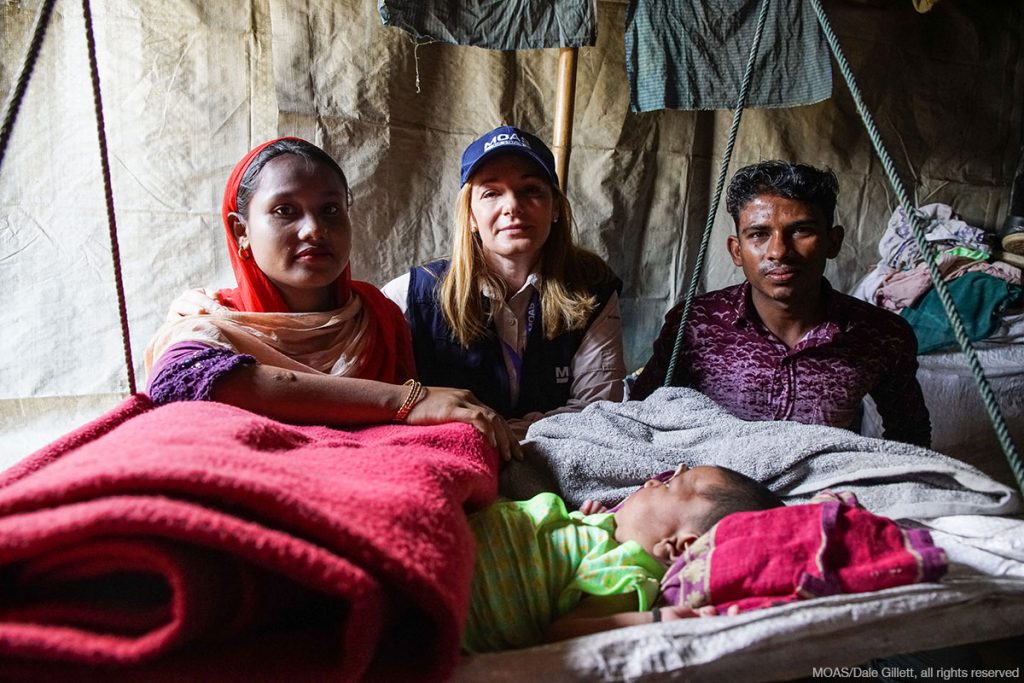A big rice bag, some pieces of wood and a rope: simple materials to support a cradle hanging from the roof, a cradle suspended like the life of the baby sleeping inside it. This is the first thing I see after entering the shelter of a young couple living in one the new Rohingya settlements in Bangladesh: a hanging cradle, a brilliant metaphor to portray the life of thousands of Rohingya children in Bangladesh. According to the most up-to-date UNICEF figures, more than 520,000 children are trapped in precarious conditions in the refugee camps and makeshift settlements which have sprung up to shelter the huge influx of people who left Myanmar after violence erupted last August 25th. Being stateless and highly vulnerable, children pay the highest price of this humanitarian crisis, living a life of deprivation and marginalisation which leaves psychological scars and has practical consequences, such as a lack of schooling.
When I enter their shelter, my mind goes back in time, and I think about ancient stories from the aftermath of WWII and how we used to hang cradles from the roof. I think of my grandmother, who used to put cotton in the windows to keep my father – a premature baby – warm. Suddenly, I feel at home, but what moves me the most is the feeling of love spreading from this young couple: they both open their shelter to me with dignity and endearing simplicity, as if I were a relative or a friend who came to visit.
On this occasion, I remember that soon it will be Valentine’s Day, a day celebrating love when couples renew their promises and exchange small gifts. I think about my husband, our daughter, our home where we meet at the end of every journey keeping us apart, and I cannot wait to be with them. But, with this Rohingya couple in front of me, I feel another kind of love: a love that overcomes the dimension of a single couple and a family, a love that includes your soulmate and children -if any-, as well as the entirety of humankind.

Inside a warm shelter made of plastic and bamboo I reflect on what makes us really human, and on the actions that multiply love instead of dividing it. I think about us out at sea to assist vessels in distress, and about the people who are currently receiving medical assistance at our Aid Stations in Shamlapur and Unchiprang, thanks to our Southeast Asia mission in Bangladesh. While looking at this family, who have survived a terrible journey and are used to poverty and deprivation, I realise that many things that we consider fundamental are actually redundant for those who have almost lost their lives.
On Valentine’s Day, on behalf of our MOAS team, I wish to share a message of universal Love which overcomes the private dimension to embrace every human being on Earth. I wish to invite everybody to reflect on the word Love, a feeling that goes beyond the private dimension of a couple or a family. Love is such a spontaneous and immediate feeling that it unites all of us. When we encounter someone, when we assist our brothers and sisters in need, when we show mercy to the most vulnerable and forgotten people, we discover the real meaning of Love and restore the humanity necessary to open our hearts to listening, understanding and welcoming new people. Tangible evidence of this can be found in the 7,800 patients who received our medical care in January alone.
Happy Valentine’s Day!



